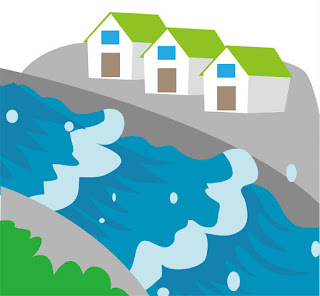Japanese first grader's "Juku-go" vol.1
 |
| First grader's 熟語(Juku-go) |
These are the idioms that Japanese first graders learn.
青白い(あおじろい ao-jiroi)
 |
| I saw a pale fire outside last night. |
わたしは ゆうべ、そとで あおじろい ほのおを みました。
Watashi wa yuube, soto de ao-jiroi honoo wo mimashita.
---------------------------------------------------------------------------
夕べ(ゆうべ yuube)= The time after evening
外(そと soto)= Outside
炎(ほのお hono-o)= A fire that burns more intensely than fire
青空(あおぞら ao-zora)
 |
| The rain has stopped and the blue sky is spreading. |
あめが あがり、あおぞらが ひろがって いる。
Ame ga agari, ao-zora ga hirogatte iru.
The rain has stopped and the blue sky is spreading.
-----------------------------------------------------------------------
上がる(あがる agaru)= (Rain)stop
広がる(ひろがる hirogaru)= Like the canvas becomes a solid blue color
青虫(あおむし ao-mushi)
あおむしはなにをたべますか?
Ao-mushi wa nani wo tabe masuka?
What do the blue worms eat?
---------------------------------------------------------------------
食べる(たべる taberu)= Eat
赤字(あかじ aka-ji)
わがやの かけいは、あかじが つづいて いる。
Wagaya no kakei wa aka-ji ga tuzuite iru.
Our family budget has been in the red.
-------------------------------------------------------------------
わが家(わがや Waga-ya)= In this case, 家 is the family.
家計(かけい kakei)= The income and expenditure of a family
続く(つづく tsuzuku)= To continue. When you write this in hiragana, you use づ instead of ず.
足音(あしおと ashi-oto)
だんだんと あしおとが ちかづいて きた。
Dandan to ashi-oto ga chikazuite kita.
Gradually the footsteps approached us.
---------------------------------------------------------------------
段々(だんだん Dan-dan)= Gradually. 「々」is a word that is added to the end of a repeating character.
近付く(ちかづく chikazuku)= To approach. When you write this in hiragana, you use づ instead of ず.
雨足(あまあし ama-ashi)
だんだんと あまあしが つよく なって きた。
Dandan to ama-ashi ga tsuyoku natte kita.
The rain is getting heavier.
-----------------------------------------------------------------
雨足(あまあし ama-ashi)= The length of a drop of water
強い(つよい tsuyoi)= heavy or strong
雨水(あまみず ama-mizu)
かわに あまみずが ふり そそぐ。
Kawa ni ama-mizu ga huri sosogu.
Rain falls on the river.
-----------------------------------------------------------------
In this case,the correct pronunciation is "ama-mizu", not "ame-mizu".
降る(ふる huru)= To fall. For exam, "Snow が降る(ふる)"
注ぐ(そそぐ sosogu)= To pour
雨上がり(あめあがり ame-agari)
あめあがりのそらがきれいだ。
Ame-agari no sora ga kirei da.
The sky is beautiful after the rain.
--------------------------------------------------------------------
上がる(あがる agaru)= The rain stop.
きれい kirei = Beautiful
一円玉(いちえんだま Ichi-en-dama)
 |
| Ten one-yen coins make ten yen. |
いちえんだまが じゅうまいで、じゅうえん です。
Ichi-en-dama ga jyuu mai de jyuu en desu.
Ten one-yen coins make ten yen.
---------------------------------------------------------------------
たま tama = Round thing
枚(まい mai)= A unit for counting plates
一年(いちねん ichi-nen)
 |
| 1 year is 365 days. |
いちねんは さんびゃく ろくじゅう ご にち です。
Ichi-nen wa san byaku roku jyuu go nichi desu.
1 year is 365 days.
一目(いちもく ichi-moku)
わたしは かれに いちもく おいて いる。
Watashi wa kare ni ichi-moku oite iru.
I have a high opinion of his ability.
----------------------------------------------------------------------
置く(おく oku)= Don't understand this expression as placing it, but remember it as the phrase
「一目置く いちもくおく Ichi-moku oku.」= Approve
一気(いっき i-kki)
かわの みずが いっきに ふえた。
Kawa no mizu ga i-kki ni hueta.
The water in the river increased rapidly.
------------------------------------------------------------------
増える(ふえる hueru)= Increase
That's it for this time. See you.
note: CVさとうささら



















